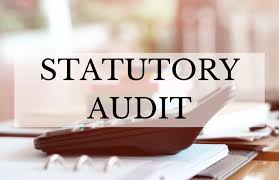![]()
Statutory Audit Requirements
Ensuring compliance with relevant statutory audit requirements in engineering processes and practices involves several steps to maintain transparency and accountability.
Here’s a detailed explanation:
1. Documentation and Records:
Maintain comprehensive records of all engineering activities, processes, and decisions.
This includes design plans, technical specifications, project timelines, and communication records.
Having accurate and organized documentation ensures that the audit trail is clear and accessible.
2. Internal Controls:
Implement robust internal controls that outline the procedures, responsibilities, and checks at every stage of the engineering process.
Internal controls help prevent errors, fraud, and inconsistencies, reducing the likelihood of non-compliance during the audit.
3. Adherence to Standards:
Ensure that all engineering practices follow industry-specific standards and regulations.
This includes using approved materials, following established design codes, and adhering to safety protocols.
Compliance with these standards not only ensures safety but also satisfies audit requirements.
4. Regular Reviews and Audits:
Conduct internal reviews and audits of your engineering processes at regular intervals.
These reviews help identify any deviations from established protocols and provide an opportunity to rectify them before an external audit takes place.
5. Quality Assurance:
Implement a robust quality assurance program that monitors and evaluates the quality of engineering outputs.
This includes conducting tests, simulations, and inspections to ensure that the final products meet the required standards.
6. Training and Skill Development:
Invest in continuous training and skill development for your engineering team. Well-trained professionals are more likely to follow established procedures accurately, reducing the chances of non-compliance.
7. Risk Management:
Identify potential risks and vulnerabilities in your engineering processes. Develop mitigation strategies to address these risks and ensure that your practices remain compliant with regulations.
8. Collaboration and Communication:
Foster open communication and collaboration among different teams involved in engineering projects.
This helps in addressing issues promptly, resolving conflicts, and ensuring that everyone is aligned with the compliance requirements.
9. External Expertise:
Seek advice from external experts, consultants, or auditors who specialize in the relevant regulations and standards.
Their insights can help you identify areas of improvement and ensure compliance.
10. Continuous Improvement:
Establish a culture of continuous improvement within your engineering team. Regularly assess processes, gather feedback, and implement changes that enhance compliance with statutory audit requirements.
Ensuring compliance with statutory audit requirements in engineering processes involves maintaining accurate records, following industry standards, conducting regular internal reviews, and fostering a culture of accountability.
By implementing these practices, you can be better prepared for audits and demonstrate your commitment to compliance.
To visit: https://www.mca.gov.in/

For further details access our website: https://vibrantfinserv.com
